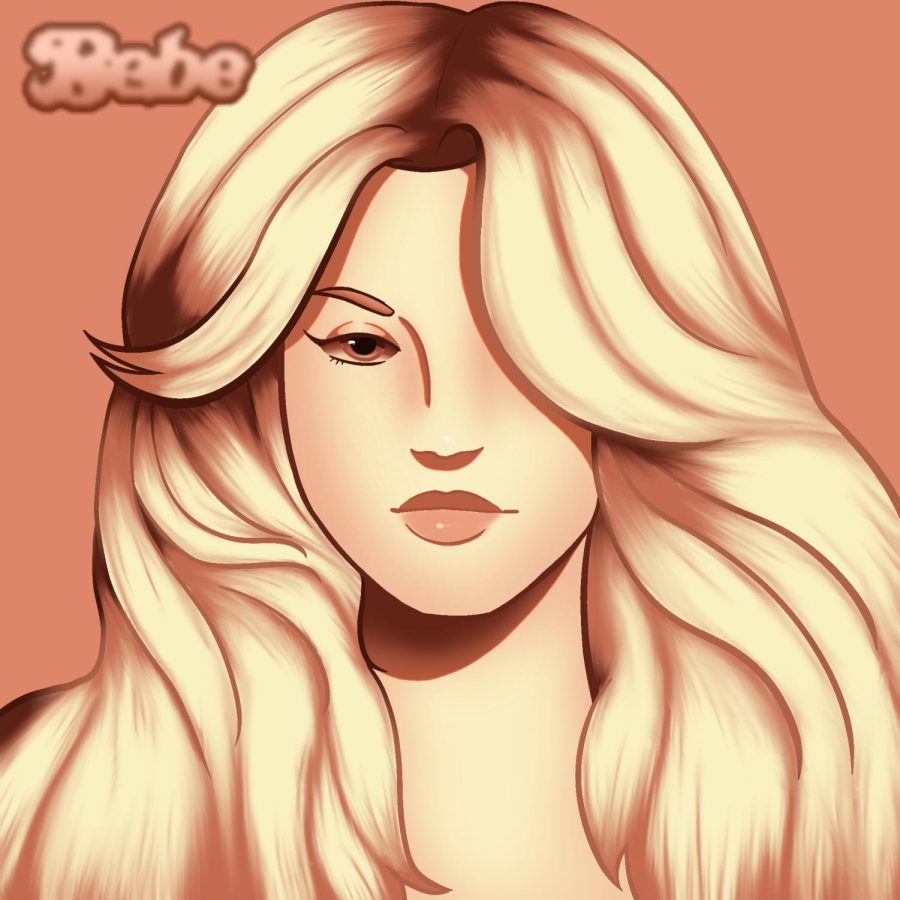REVIEW: ‘Bebe’ teleports you to eerie ‘70s disco party
Bebe Rexha’s newest album blends mainstream pop, indie and retro dance music
Violins and their retro harmony resonate through your ears and deliver a shot of dopamine to your brain.
May 25, 2023
Score: 8/10
Brooklyn gal Bebe Rexha gained fame through her influential talent in songwriting. Rexha was a songwriter for Eminem, Rihanna and Selena Gomez, according to AllMusic. She has also collaborated with famous artists, such as Cash Cash, David Guetta, Martin Garrix, G-Eazy, Lil Wayne, Nicki Minaj and Florida Georgia Line.
Her first album, “Expectations,” combines mysterious lyrics with the vibe you get upon entering an H&M store. Her second album, “Better Mistakes,” features uncanny themes about love, death and obsession.
“Bebe,” her latest album, highlights songs Rexha seems to genuinely enjoy singing rather than songs she might have produced purely for mainstream consumption.
The album radiates a disco atmosphere while incorporating emotions of confusion, romance and euphoria. Rexha created the perfect blend of mainstream pop, indie and retro dance music.
Each song starts with a nostalgic ‘70s beat. Her intros in the album are superb; one could listen to her intros on repeat and imagine themselves floating toward the ceiling.
Upon entering the world of “Bebe” through the first song, “Heart Wants What It Wants,” listeners are met with one instrumental — a pounding drum — before others fill the background.
Twenty seconds in, Rexha’s stunning, slightly raspy voice resonates through your eardrums as she sings about her choosy heart.
As the song progresses, the beat transitions to an upbeat dance style. Rexha’s voice transforms throughout the song: one moment, her singing is loud and raw, and in the next, it becomes a whisper rustling through the trees, carried by a passionate breeze.
Rexha’s collaboration with Snoop Dogg in “Satellite,” the third song in the album, features her smoking weed and sinking into the feeling of being high.
While I do not smoke and cannot relate to nor understand what that feels like, I enjoy her use of intense vocals and Snoop’s humorous interventions. Anyone would bob their head to the addictive beat of the song.
Rexha collaborates with other famous artists in “Bebe.” The sixth song, “I’m Good (Blue),” features Guetta’s DJ expertise and encourages listeners to twirl around their room. Any room in which “I’m Good (Blue)” plays surely contains a disco ball, whether visible or invisible.
Beloved Dolly Parton can be heard in the last song, “Seasons.” While this final song is too slow for me personally, it features meaningful themes of loneliness and self-love. I do not know much about Parton, but I do know many Rexha and Parton fans were ecstatic for such an iconic collaboration.
Some of the most addictive songs in “Bebe” are “Heart Wants What It Wants,” “I’m Good (Blue),” “Visions (Don’t Go),” “I’m Not High, I’m In Love,” “Blue Moon” and “I Am.”
If I had to pick a favorite song, the eighth song “I’m Not High, I’m In Love” would triumph. It stole my heart with its slow, synthesized intro, which then speeds up into an electric song filled with Rexha’s thundering voice.
“I’m Not High, I’m In Love” is repetitive, but oddly enough, repetition suits it flawlessly. Violins and their retro harmony resonate through your ears and deliver a shot of dopamine to your brain multiple times throughout the song.
My highest recommendation is to listen to “Bebe” with headphones on. Forty-four seconds into “I’m Not High, I’m In Love,” your left ear is struck with a mountainous melody as Rexha sings about colors. Next, your right ear is struck with a similar melody as Rexha sings about a kaleidoscope. It is truly an exuberant experience.
“Bebe” is nothing short of exceptional. It combines raw emotion with electronic effects, each song utilizing more of one or the other.
“Bebe” receives an 8 from me. This lofty score stems from the thoughtful lyrics, vintage atmosphere, famous collaborators, stunning instrumentals and, of course, Rexha’s accented voice.
I sincerely hope “Bebe” rises to fame like songs from the likes of Doja Cat and The Weeknd often do.
My only criticism of “Bebe” is the lack of obvious transitions between songs.
Many albums do not include unique transitions, but “Bebe” had the perfect opportunity to replicate an album style like that of Beyonce’s “Renaissance,” in which most of the songs’ beats seamlessly flow into one another instead of fading. Transitions could have added to the retro atmosphere of “Bebe” while sprinkling in the unexpected.
A couple of slow songs and a lack of transitions in “Bebe” are what knocked my rating down two points. However, the transitions criticism is minor, and the slow songs criticism is due to my personal music taste.
Kudos to Rexha for releasing such a wonderful album, rightfully named after herself. She does not seem to be leaving the music industry anytime soon, and with her remarkable vocals, it would be sad if she did.










